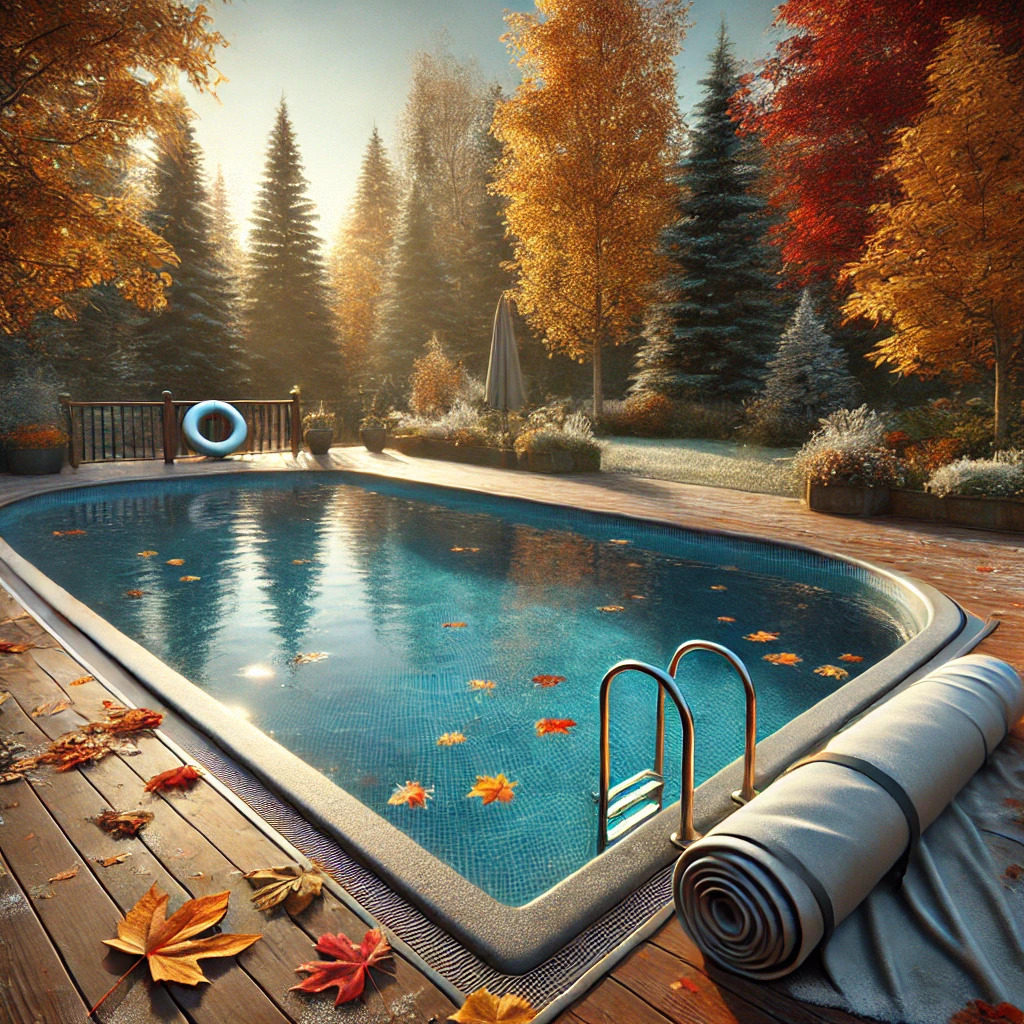As temperatures begin to dip, there’s no shortage of tasks to tackle around the home. However, for pool owners, there’s an additional job of closing a pool for winter. While many pool owners know it’s necessary, the question that we’re often asked: when should I close my pool for winter?
A good rule of thumb is to monitor the regional temperature and close your pool once it consistently drops below 60°F. Although some might wait until it reaches 50°F, waiting too long increases the risk of freezing water in the pipes, which can cause damage. As fall fades, keep an eye on the weather—if the temperature holds under 60°F, it’s time to begin the closing process.
However, knowing when to close your pool is just the start. Proper preparation is key to ensuring that your pool weathers the colder months safely and is ready for use when spring arrives.
What Month Should You Close Your Pool In Georgia?
In Georgia, the ideal time to close your pool for winter typically falls between late October and early November. During this time, nighttime temperatures often drop to around 55°F, though daytime highs may still exceed 60°F. For the best results, wait until the average temperature consistently stays between 50°F and 60°F before closing your pool.
What Happens If You Don’t Close Your Pool In The Winter?
Not closing your pool in the winter can result in significant damage to your pool equipment, including the pump, filter, and pipes. This happens when standing water inside the plumbing freezes and expands, creating increased pressure that can cause the pipes to crack. Proper winterization helps prevent these issues.
How To Winterize A Pool?
Winterizing a swimming pool involves preparing it for the colder months to prevent damage caused by freezing temperatures. Here are the steps to winterize a pool:
1. Clean the Pool
Skim off debris, vacuum the pool, and clean the walls and floor to prevent algae growth over the winter.
2. Balance the Water Chemistry
Test and maintain the pH, alkalinity, and calcium hardness within recommended range to prevent corrosion and scale buildup during winter.
3. Add Winterizing Chemicals
Add algaecide, metal sequestrants, and a winter chemical kit that includes stain and scale preventers, algaecide, and oxidizers.
4. Lower the Water Level
Depending on the type of pool and cover, lower the water level to about 4-6 inches below the skimmer for above-ground pools, or just below the skimmer for in-ground pools. Avoid completely draining the pool.
5. Drain Equipment
Drain water from pumps, filters, heaters, and chlorinators. If possible, remove the equipment and store it indoors. Blow out the water from the plumbing lines with an air compressor to prevent freezing.
6. Install Pool Cover
Use a durable, tight-fitting pool cover to keep out debris and prevent water contamination. Ensure it’s secured tightly with cover clips or water tubes to withstand winter weather.
Can I Leave My Pool Empty For The Winter?
No, leaving your pool empty for winter is not recommended. An empty pool is more vulnerable to structural damage, as the ground pressure around it can cause the pool walls or floor to crack or shift. Additionally, winter weather can worsen these effects. It’s better to keep the pool filled, properly winterized, and covered to protect it during the off-season.
How Do I Make Sure My Pool Pipes Don’t Freeze?
To prevent pool pipes from freezing, ensure the water is circulating by running your pump. You can also insulate exposed pipes or use a pool antifreeze to protect them further during extremely cold weather.
Should I Run My Pool Pump During A Freeze?
Yes, running your pool pump during a freeze helps keep water moving, which prevents it from freezing inside the pipes. If possible, set the pump to run continuously to avoid any ice buildup.
Final Words
Closing your swimming pool at the right time is crucial for maintaining its condition and preventing costly repairs. Since now you know when to close the pool, following the key steps outlined in this guide will ensure your pool remains safe and ready for enjoyment next summer. Don’t wait until it’s too late; start preparing your pool for winter today!

